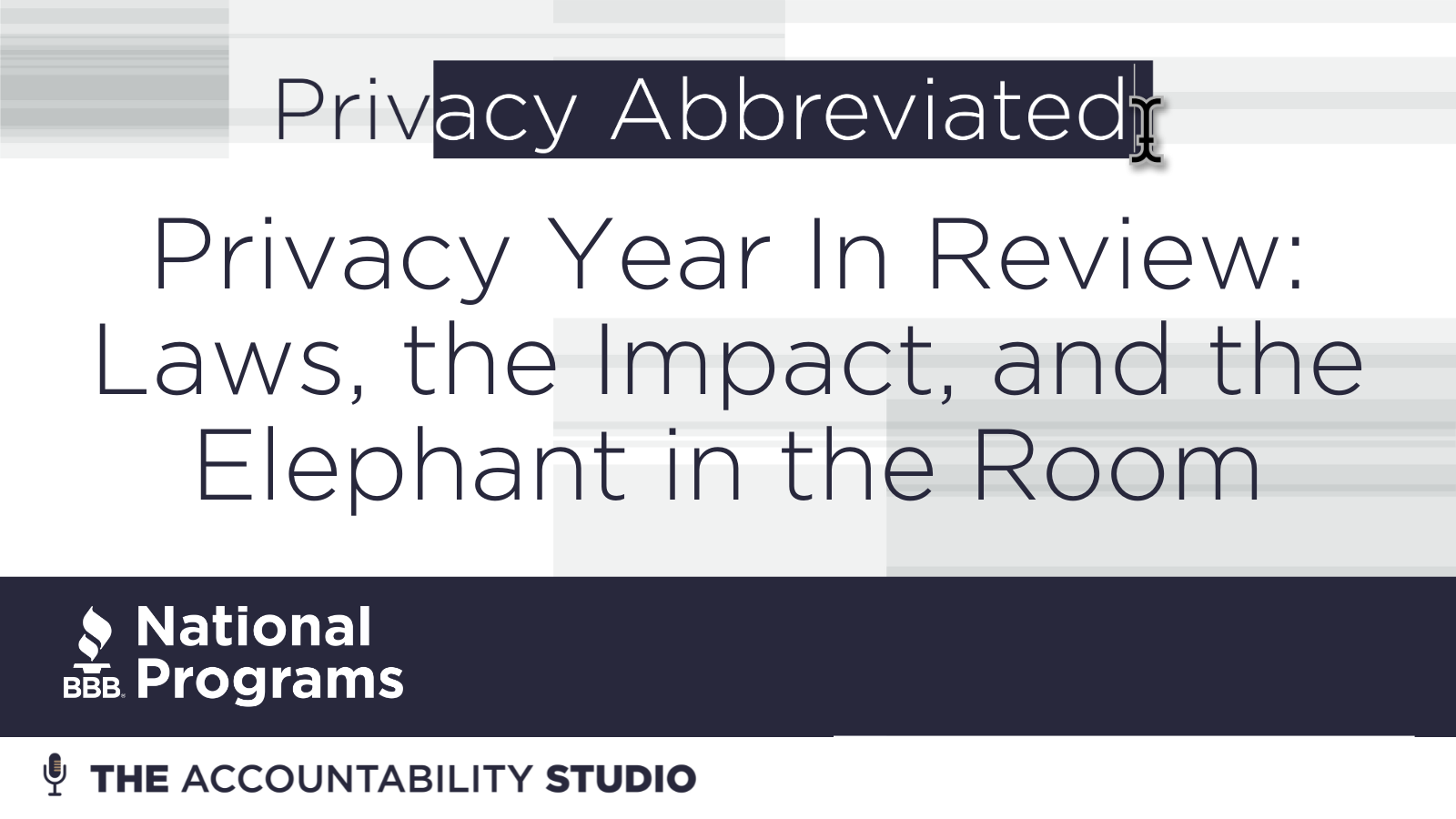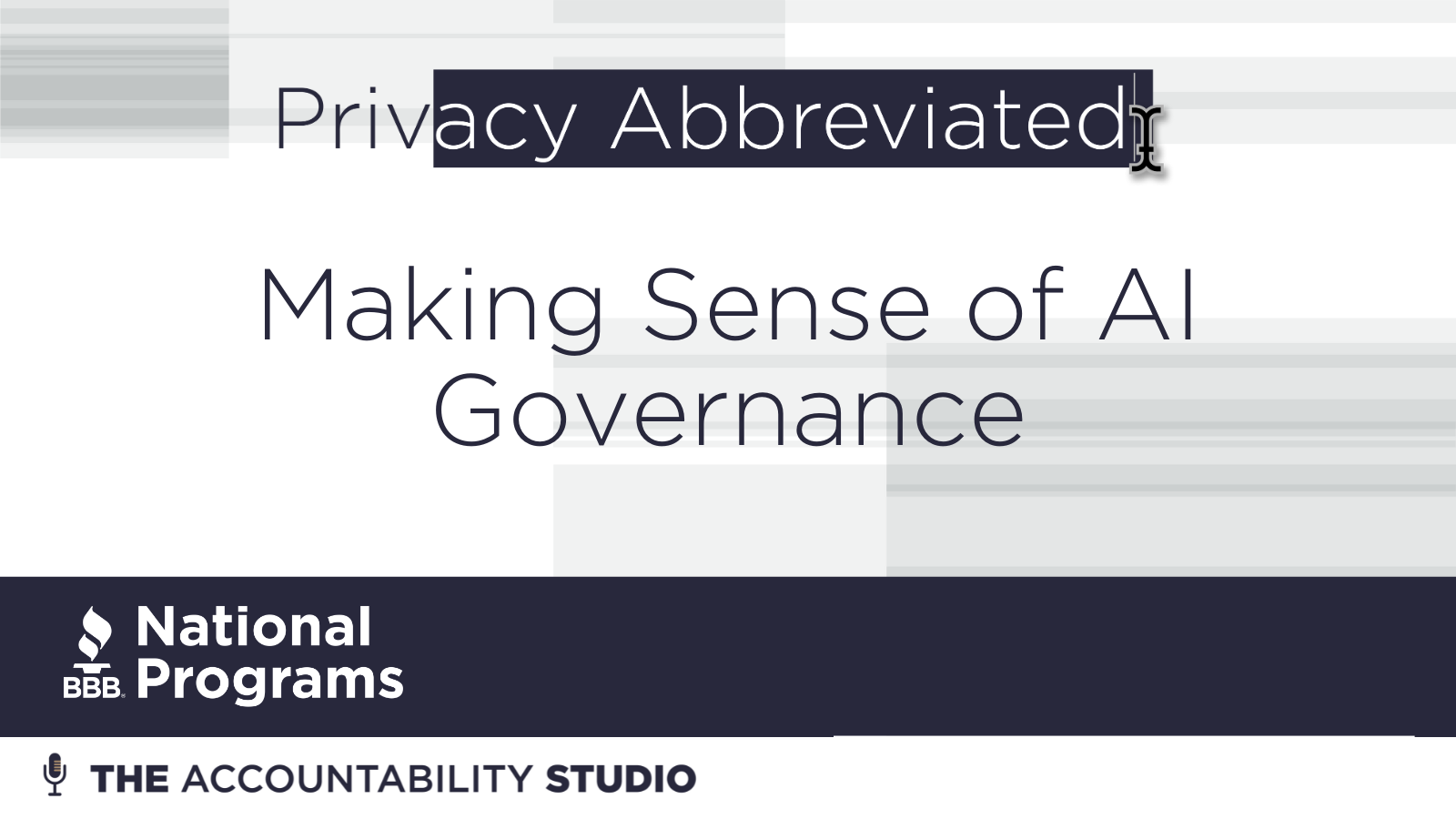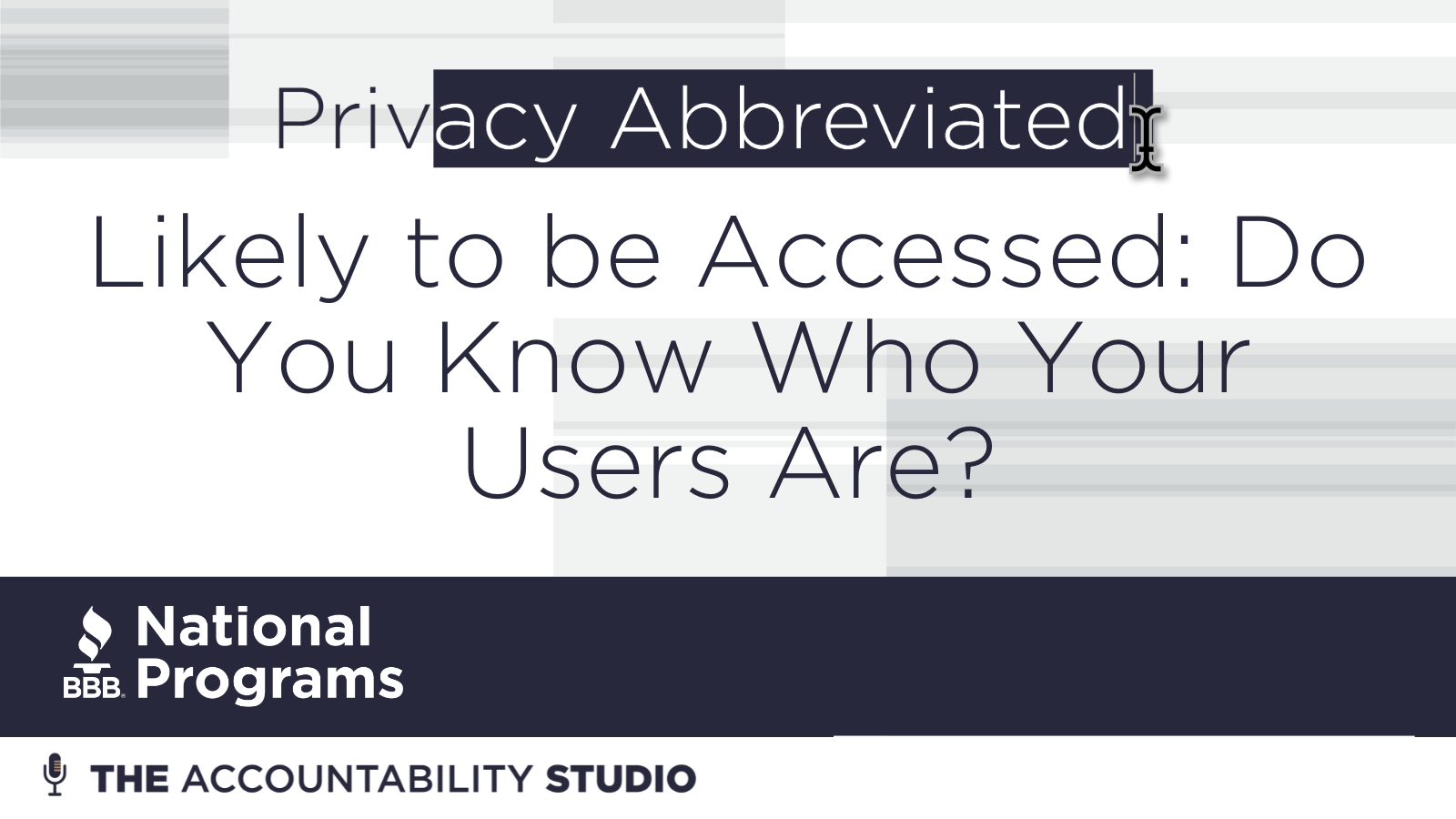Podcast (privacyabbreviated): Play in new window | Download (Duration: 36:50 — 50.8MB) | Embed
Subscribe: Apple Podcasts | Spotify | RSS
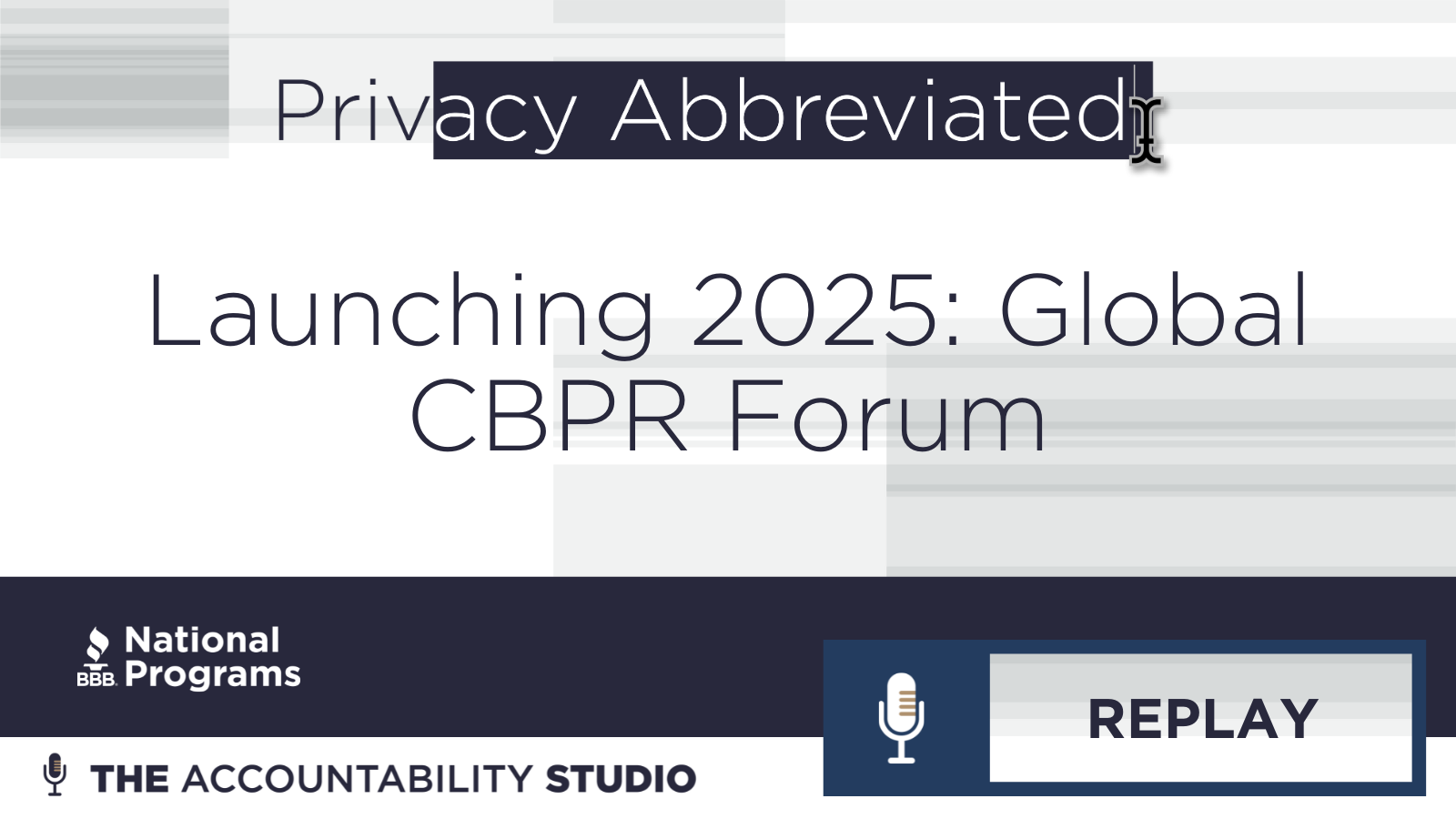
Last year, the U.S. Department of Commerce announced the establishment of the Global Cross-Border Privacy Rules (CBPR) and Global Privacy Recognition for Processors (PRP) Systems. In anticipation of its official launch this year, get caught up with a deep dive on the world of CBPRs with Priv host Dona Fraser and her guest Victoria Akosile, Deputy Director of BBB National Programs Privacy Initiatives.
This episode, which originally aired in May 2024, breaks down the “what you need to know” knowledge about the global CBPR system, quickly reviews the “how we got here” facts, and provides you with the “what do I do now” information you need, whether you are a data controller or data processor.
Key Takeaways:
- (2:58) The CBPR framework establishes a unified set of privacy requirements, fostering international alignment for compliance. It serves as a benchmark for companies to ensure their privacy practices meet a globally recognized standard. By adhering to CBPR requirements, companies can enhance consumer trust and mitigate risks associated with data privacy non-compliance.
- (8:05) Integration into the CBPR program enables companies to assess and fortify their privacy procedures. Participation facilitates a structured review process, identifying areas for improvement in privacy management. It empowers companies to adapt to evolving privacy regulations and consumer expectations, ensuring resilience against data breaches and regulatory penalties.
- (13:47) CBPR and PRP certifications present an opportunity to revolutionize vendor management strategies. Companies can leverage certifications to vet vendors, selecting partners with robust privacy safeguards. Certification streamlines data transfers by providing assurance of compliant data handling practices across the supply chain.
- (24:07) BBB National Programs acts as an accountability partner, aiding companies in obtaining CBPR and PRP certifications. Through collaborative engagement, BBB National Programs assists companies in navigating the certification process efficiently. Our expertise helps companies uphold high privacy standards, fostering consumer trust and regulatory compliance.
- (33:11) The forthcoming Global CBPR Forum meeting in Tokyo anticipates widespread interest from nations seeking to join the framework and advance data privacy interoperability. The event serves as a platform for sharing best practices and fostering collaboration among participating countries. It underscores the global momentum towards harmonizing data protection regulations, promoting cross-border data flows while safeguarding individual privacy rights.

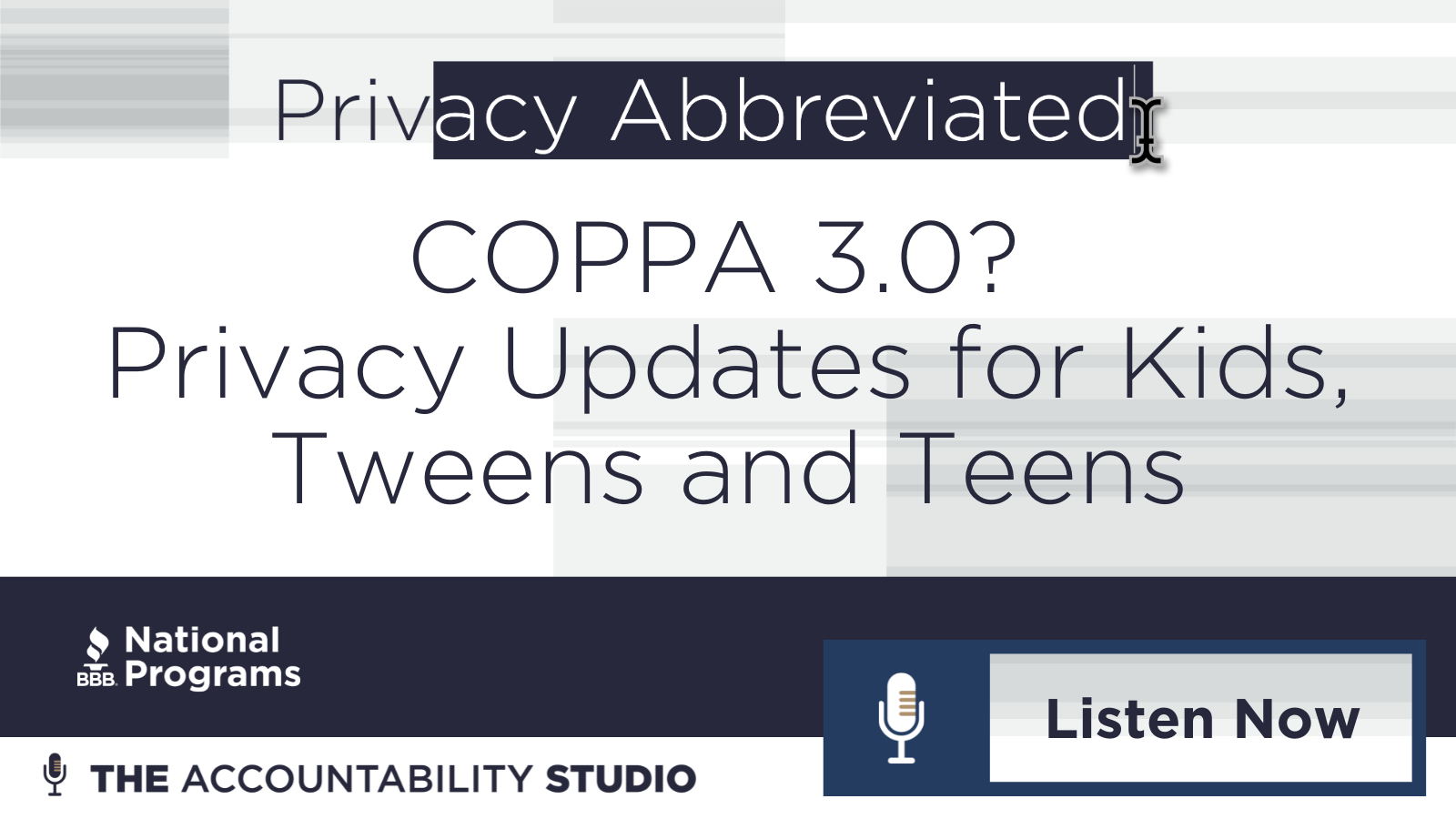 Join us for this episode of Privacy Abbreviated, where Dona Fraser is joined by Rukiya Bonner, Director, Children’s Advertising Review Unit, BBB National Programs to discuss a year in children’s privacy in review. Dona and Rukiya break down the FTC’s COPPA Rule revisions, what new legislation has been proposed, what those proposals mean for businesses (including consideration of teen users), and predictions on what could be coming next.
Join us for this episode of Privacy Abbreviated, where Dona Fraser is joined by Rukiya Bonner, Director, Children’s Advertising Review Unit, BBB National Programs to discuss a year in children’s privacy in review. Dona and Rukiya break down the FTC’s COPPA Rule revisions, what new legislation has been proposed, what those proposals mean for businesses (including consideration of teen users), and predictions on what could be coming next.